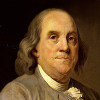“ But these reasoners are, as I have said, easily confuted, for the perfection of things is to be reckoned only from their own nature and power; things are not more or less perfect, according as they delight or offend human senses, or according as they are serviceable or repugnant to mankind. ”
Baruch Spinoza, Ethics (1677). copy citation
| Author | Baruch Spinoza |
|---|---|
| Source | Ethics |
| Topic | perfection power |
| Date | 1677 |
| Language | English |
| Reference | |
| Note | Translated by R. H. M. Elwes |
| Weblink | http://www.gutenberg.org/files/3800/3800-h/3800-h.htm |
Context
“If all things follow from a necessity of the absolutely perfect nature of God, why are there so many imperfections in nature? such, for instance, as things corrupt to the point of putridity, loathsome deformity, confusion, evil, sin, &c. But these reasoners are, as I have said, easily confuted, for the perfection of things is to be reckoned only from their own nature and power; things are not more or less perfect, according as they delight or offend human senses, or according as they are serviceable or repugnant to mankind. To those who ask why God did not so create all men, that they should be governed only by reason, I give no answer but this: because matter was not lacking to him for the creation of every degree of perfection from highest to lowest; or, more strictly, because the laws of his nature are so vast, as to suffice for the production of everything conceivable by an infinite intelligence, as I have shown in Prop. xvi.
” source
” source



